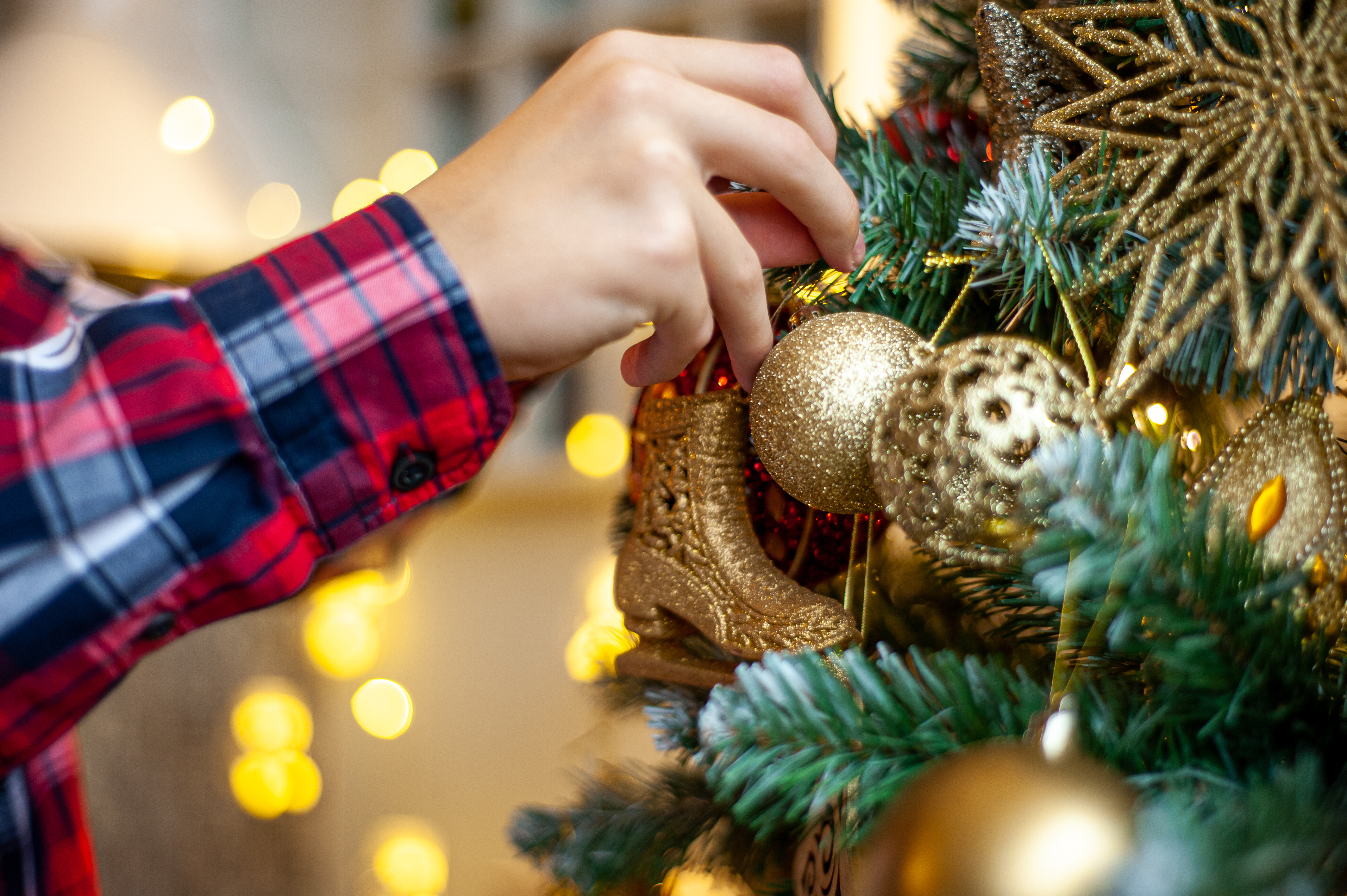Coping With Grief During The Holidays

The holidays are meant to be “the most wonderful time of the year” — but for those mourning the loss of a loved one, it may not feel like it. As we approach the winter months, many are struggling to balance the cheeriness around them with the grief they feel inside — and that’s normal.
“It’s a time that either brings people together or calls to mind past holidays that people spend together,” said Teresa Grella, the Director of the Counseling and Mental Health Professions Clinic at Hofstra University and a licensed marriage and family therapist. “So of course, if you’re grieving the loss of someone, you really feel their absence in a different way at that time of year.”
“It’s certainly going to spark that sense of loss in a renewed way,” she added.
Among the most important things to understand about grief is that it is not linear. It ebbs and flows over time, sometimes resurfacing in new and unexpected ways. Holidays like Thanksgiving, Christmas, Hanukkah and New Year’s Eve are often especially difficult, especially the first year after losing a loved one. Barbara Sheridan doesn’t remember a thing from Christmas 2021 after losing her husband, John, that March — the grief made everything a blur.
“It’s just you missing a loved one,” Sheridan said. “You see that empty chair, and it just kind of brings it all back — the music, the traditions they had that time of the year, doing things together.”
“You just can’t believe that person’s not there,” she said.
People sometimes feel as though it would be wrong or disloyal of them to be happy, or that they shouldn’t continue traditions when a loved one isn’t there to do it with them, Grella said. But it’s okay to celebrate the holidays, even if they look a little different than they had in the past.
Perhaps someone from the next generation will start making a classic holiday dish that a loved one used to make. Perhaps a family who once preferred to celebrate Thanksgiving from the couch will become turkey trotters in memory of someone who loved to run.
“Doing something in the person’s memory can also be a really special way to connect to the person and also honor your own grief,” Grella said.
Above all else, don’t be so hard on yourself, Sheridan said. When she was first learning to manage her grief, she had to learn how to “just [take] care of Barbara.” That doesn’t mean handling it all by yourself, she said. Rather, quite the opposite — connect with family. Join a bereavement support group. Acknowledge that you’re hurting, and let people help you.
Some feel pressure to keep appearances up in front of their families — they worry that they’ll be a “downer” if they acknowledge feelings of grief. But who better to understand than those who are mourning the same loss?
“In some cases, families avoid that conversation,” Grella said. “Which, as a family therapist, I understand, and also always want to push back on it to say: actually, when we’re able to open up and talk to each other, it’s such a relief. Rather than people feeling they’re burdening someone else, usually it’s a tremendous release to be able to feel not alone in it, and feel that you can take care of each other.”
Grief and joy are not antithetical, nor are they mutually exclusive. Those emotions, as most already know, are far too complicated to fit neatly into predetermined boxes. Some say that grief is the new shape love takes after loss.
“Grief is the way we honor the love we had — and have — for someone,” Grella said. “Relationships don’t end when people die. We carry people with us.”
“That grief is a measure of that love in a way,” she said. “An extension of love.”
On Christmas Eve 2022, Sheridan’s grandsons all wore her husband’s old coats. Their grandfather is no longer there in person to celebrate with them — but his love continues to keep them warm during the holidays.









